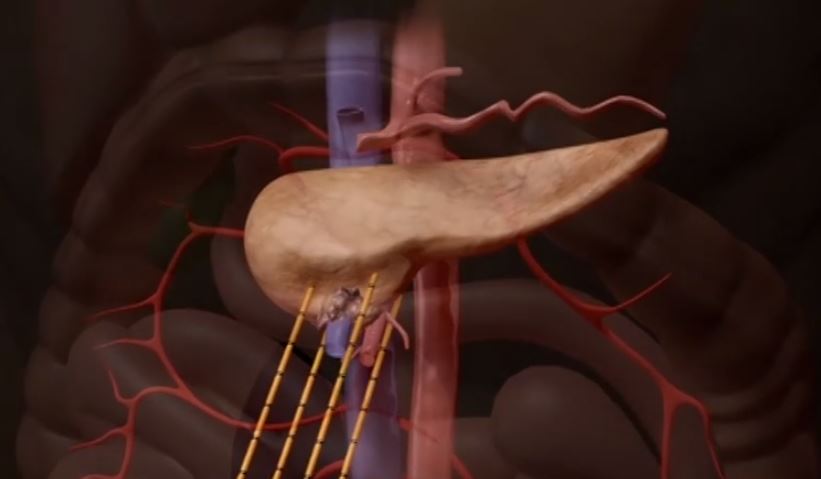Doctor with Survivor Discusses Her Battle Against Advanced Pancreatic Cancer and Amazing Long-Term Remission
It’s well known that pancreatic cancer has the highest mortality rate of all cancers, making a diagnosis a virtual death sentence. In fact, it’s estimated that 94% of pancreatic cancer patients die within five years of diagnosis, and 74% of patients die within the first year.
Given its deadly nature and the fact that it’s anticipated to move from the #4 leading cause of cancer-related deaths in the US to #2 by 2020, finding additional treatment options for advanced pancreatic cancer is critical.
Now a study led by the University of Louisville’s James Graham Brown Cancer Center in collaboration with other leading US centers, called Soft Tissue Ablation Registry or STAR, is showing great promise for people with locally advanced pancreatic cancer. The data provides additional evidence that irreversible electroporation (IRE) ablation has the potential to augment the current treatment model and change the standard of care for patients with locally advanced pancreatic cancer.
The NanoKnife® IRE system is a tool that destroys cancerous cells by subjecting them to a series of short electrical pulses using high-voltage direct current that does not injure surrounding cells, blood vessels or other vital structures.
Diagnosed at forty-three years old, with two young boys in kindergarten and second grade, Elise Tedeschi, is available to discuss her personal battle with pancreatic cancer. Given just 9 months to live, she is now more than two and a half years in remission and thriving.
Joining her is leading oncology surgeon, Dr. Robert Martin. Together they bring both a professional and personal, real-world view to what this new surgical technology could potentially do for those faced with a diagnosis of locally advanced pancreatic cancer. They also want to encourage patients be advocates about their healthcare and explore all options available to them.
ABOUT: Robert Martin, M.D., Ph.D.: Dr. Martin has devoted most of his career to cancer treatment and care. He is the Director of the Division of Surgical Oncology, faculty member, and an Associate Professor in the Department of Surgery at the University of Louisville, James Graham Brown Cancer Center in Kentucky. He received his M.D. from the University of Louisville School of Medicine, his surgical oncology training and hepato-pancreatico-biliary training from Memorial Sloan-Kettering Cancer Center, and his Ph.D. from the Department of Pharmacology and Toxiciology at the University of Louisville School of Medicine.
About STAR: The Soft Tissue Ablation Registry (STAR) is a retrospective analysis of Irreversible Electroporation (IRE) performed on 200 locally advanced pancreatic cancer patients at six medical centers in the US.
This interview is provided by the University of Louisville
The study was conducted at the University of Louisville, Cleveland Clinic, Cancer Treatment Centers of America in Atlanta, the Henry Ford Health Systems in Detroit, Piedmont Hospital in Atlanta and Swedish Medical Center in Denver.

















